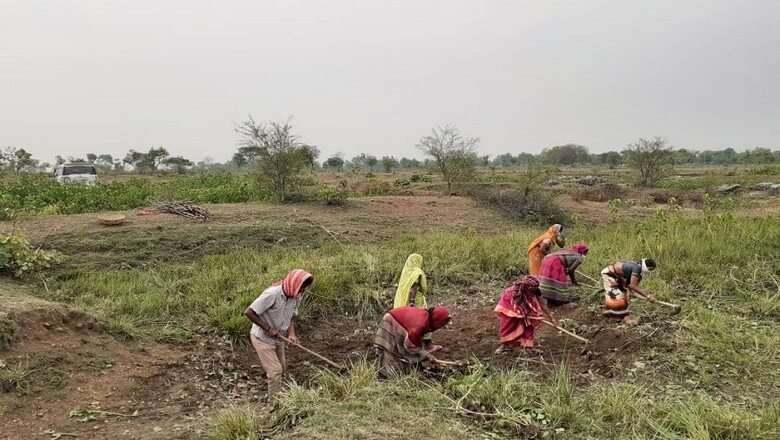
views
In a virtual meeting Prime Minister Narendra Modi had with Chief Ministers of various states on Monday, one common demand made by the heads was to increase allotment under Mahatma Gandhi National Rural Employment Guarantee Act (MGNREGA).
Many economists and civil society activists working closely in the rural sector have repeatedly emphasised the role of MGNREGA in reviving rural economies and have advocated the payment of unemployment allowance for the missed working days. Ashwini Kulkarni is among them. She has been associated with Pragati Abhiyan for over a decade, which works on MGNREGA. She is also a member of the National Consortium of Civil Society Organisations (CSOs) on MGNREGA. In this interview with News18, Kulkarni said the government is quickly running out of time to help workers in rural areas.
How high is the demand for work under MNREGA at the moment?
In Maharashtra, work only started in the third week of April. The demand is pretty high. People desperately need work. The the government has been responsive to an extent. Still, the need is too high. Work has been given to around two lakh households. But the problem is that the allocation under the union budget to MGNREGA was too less in this financial year. At this time the budget is not enough for any state.
So, what are the options before the states right now?
The state governments need to think creatively. They need to start works in which physical distancing can be maintained. For instance, laying of roads requires a lot of people to work together, but land levelling or tree plantation can be done by people while maintaining distance from each other.
With monsoons on the way, when a lot of projects will be halted, do you think a lot of crucial time was lost before pending MGNREGA payments were released and works were allocated, leaving workers with a very small available man days?
Absolutely, time was lost. The rural areas where you could have allocated works were absolutely free of coronavirus. Works within the rural areas could have continued. The problem is that allocation of MGNREGA works is marred by operational issues. You have to update works on a software and then it all has to be approved by the local Panchayat Samiti.
But labourers should not have suffered because of this. They should have been informed at the taluka level about the works that were required to be done. There was no need to interrupt MGNREGA projects and PDS all this while. A lot of lives depend on it.
Have you got in touch with the administration? Have you suggested some measures?
Yes, a group of us from National Consortium of Civil Society Organisations on MGNREGA suggested that man days under MGNREGA should be increased from 100 days to 150 days or 200 days, and that the government pay upfront 20 days of wages to any labourer who has worked in a MGNREGA project in the last 10 years as a compensation to the lost opportunities.
But in spite of the extraordinary circumstances, the government is not agreeing to it. Even when there was drought, we had increased the working days from 100 to 150. This time the government officials are not showing any flexibility. I’m afraid the distress we’re seeing in the rural sector may only be the tip of an iceberg, the full extent of which we will realise in days to come. The time to act is now.
















Comments
0 comment